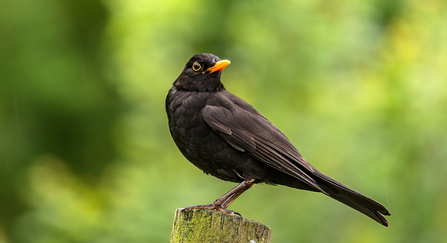- New partnership encourages communities to plant fruit trees this autumn
- Events, recipes and harvesting tips – join us to celebrate Apple Day on 21st October!
- Over 2,200 Coronation Gardens for Food & Nature pledged since June
Communities are being encouraged to plant fruit trees and to revitalise community orchards by the Coronation Gardens for Food and Nature partnership. It is estimated that around 90% of traditional orchards have been lost since the 1950s through neglect, development, and conversion to more intensive modern orchards.
Traditional orchards are prized for their value to wildlife – fruit trees that are free of pesticides are brilliant for insects and lichen, as well as birds and mammals that enjoy the fallen fruit. These special places often feature a mosaic of habitats including wildflower meadows and hedgerows. This provides homes for birds, bats and pollinators such as bees and butterflies – as well as producing food for people.
The UK Food Security Report 2021 identified climate change and nature loss as leading threats to the nation's food supply. Coronation Gardens for Food and Nature believes fruit growing has a key role to play in sustainable local food production – and that includes growing fruit in small spaces as well as on allotments.
People planting Coronation Gardens for Food and Nature are urged to avoid using pesticides and peat-based compost – and to ensure their gardens provide features that benefit wildlife. More than 2,200 backyards, balconies, school grounds and workplaces have been pledged as edible gardens and havens for wildlife since June.

